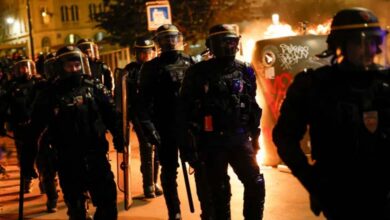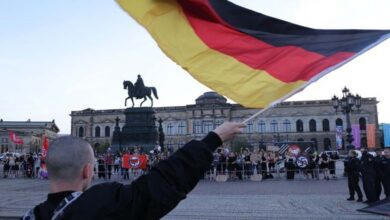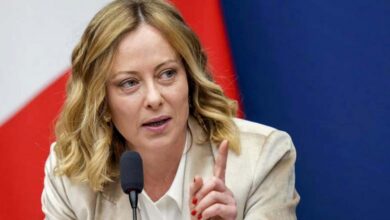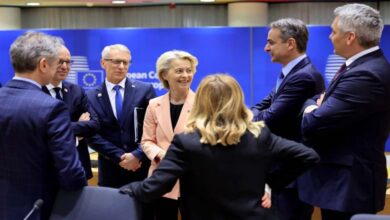France takes risk in restricting freedom of assembly in support of Israel
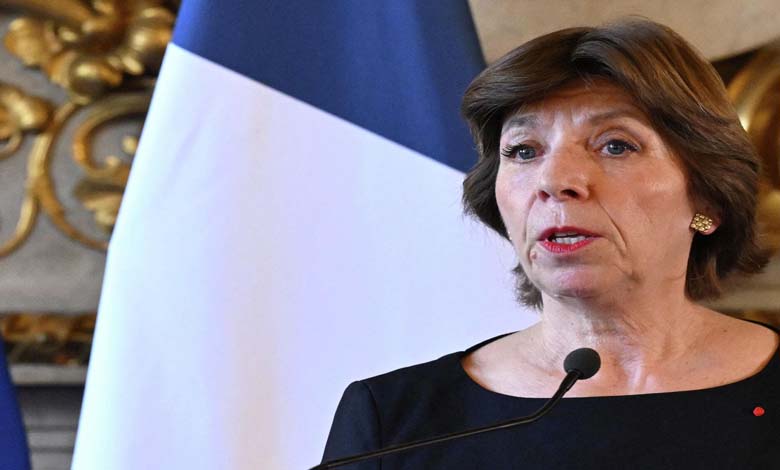
France‘s highest administrative court is preparing to issue its decision on an urgent request submitted by a Palestinian solidarity association to the Council of State regarding the strict directive issued by the Minister of the Interior to prohibit solidarity demonstrations with Gaza.
The French judiciary is moving towards issuing a ban on any demonstrations or gatherings in support of Palestinians. This move comes after the French police recently prevented marches against Israel and in support of the Palestinian people. Activists and organizations argue that concerns about the consequences of the conflict between Israel and Hamas in France cannot justify the infringement of the freedom to assemble.
It is expected that France’s highest administrative court will issue its decision on Tuesday after the French Minister of the Interior, Gérald Darmanin, announced the ban, considering that demonstrations in support of Palestinians are likely to lead to disturbances in public order.
Through this strict directive, according to the Interior Minister, France differs from other Western countries where thousands of people protested in Spain, England, the Netherlands, and the United States against the “Israeli occupation” and in support of the “Palestinian people.”
Italian Foreign Minister Antonio Tajani noted that “France makes its own choices, but banning demonstrations in a democratic country when the demonstrations are not violent does not seem fair to me.”
The French government is concerned about potential excesses in a country with the largest Jewish community in Europe, estimated at around 500,000 people, as well as about 6 million Muslims.
On Monday, Gérald Darmanin announced that 102 people had been arrested for anti-Semitic acts or supporting terrorism since Hamas attacked Israel on October 7th.
France‘s highest administrative court is expected to issue its decision on an urgent request submitted by a Palestinian solidarity association to the Council of State regarding the minister’s decision, which they considered to be in conflict with French law, as confirmed by one of its lawyers, Vincent Brengarth.
He pointed out that “this gives the impression that the Palestinian voice has no right to be heard in France,” adding, “this represents a problem for democracy.”
The administrative court had previously approved the ban of a demonstration in Paris last Thursday due to “confirmed risks of exporting violence” to French territories and “return of anti-Semitic acts,” but that did not prevent thousands of protesters from gathering.
The administrative court warned that “this exceptional ban cannot be interpreted as a blanket ban on all demonstrations with the same goal.”
Nicolas Euvrard, a public law professor at the Institute of Political Studies in Paris, believes that “in such a sensitive context, it is not expected that the Council of State would directly challenge the minister, and therefore it may try to avoid that by interpreting that it requires respect for the rules of freedom of assembly that require monitoring each case individually.”
Roseline Letteron, a professor of public law at the University of Paris-Sorbonne, described the general ban on all demonstrations as “strange,” asking, “What does a demonstration in support of Palestinians mean? Is it support for Hamas terrorism? Or victims of the conflict? Or sympathy for children under bombardment, is it support for Palestinians?”
Letteron recalled the principle that “freedom of essential assembly derived from freedom of expression cannot be banned unless there is a threat to public order.”
Nicolas Euvrard explained that “any ban must be precisely justified and must be consistent with the conditions of each demonstration. We cannot have a general and final ban.”
Véronique Gallou, the head of the freedom program at the French branch of Amnesty International, condemned the restriction of freedom of expression for those who currently want to peacefully express their support for the Palestinian people.
She emphasized that “it is clear that calls for hatred and racist statements are not protected by freedom of expression, but assuming that the demonstrators will necessarily shout such speeches contributes to a dangerous double discourse.”
In a related context, Darmanin called for a criminal investigation against a left-wing radical deputy on suspicion of “glorifying terrorism” after she described Hamas as a “resistance movement.”
The deputy, Danièle Obono, from the “France Unbowed” party, made these statements at a time when her party’s president and former presidential candidate, Jean-Luc Mélenchon, is facing increasing pressure, even from within the left, due to his stance on Hamas’s attack on Israel.
Through the X platform, Darmanin said, “Hamas is a resistance movement? No! It is a terrorist movement.” He added that he is asking the public prosecutors to open an investigation into “glorifying terrorism.”
In response to a recurring question on French radio “Radio SUD” about whether Hamas is a “resistance movement,” Obono answered, “Yes.”
The deputy in parliament since 2017 continued, “It is a political Islamic movement with an armed wing. It is a resistance movement and defines itself as such.”
Her comments sparked immediate controversy from both the right and the left, forcing Obono to resort to social media to condemn “manipulation.”
She said via X, “I said that Hamas is an Islamic political group that claims to be part of the resistance against ر,” adding, “This is a fact,” and stressed that her comments are not a justification or support for committing “despicable war crimes against Israeli civilians.”
French Transport Minister Clément Beaune described her statements as “disgusting,” saying through X, “She takes the Israeli occupation a new shameful step by defending terrorism and anti-Semitism and violating the law of the republic.”
French Prime Minister Élisabeth Borne accused the “France Unbowed” party of acting against the values of the French Republic by refusing to describe Hamas as “terrorist.”
She added during her speech at the National Assembly, “From my point of view, you alienate yourselves from the spectrum of the republic.”



